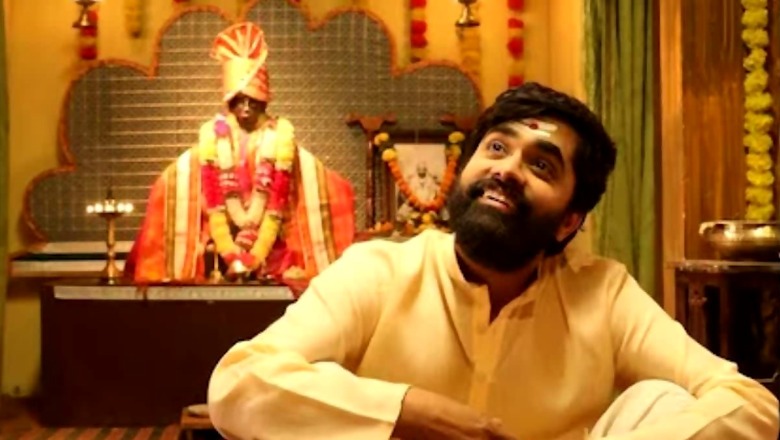
views
Sangram Samel has become one of the most sought-after actors in the Marathi film industry lately. He has received critical acclaim for projects like Sweety Satarkar, Vicky Velingkar and Undga. At present, he is playing the role of Yogiraj Shri Shankar Maharaj in the daily soap Yog Yogeshwar Jai Shankar. Sangram has received accolades for his portrayal of the role but it was a difficult experience for him.
In an interview with a portal, the actor said that people in Maharashtra respect Shankar Maharaj a lot. And that’s why, Sangram said that he had to live up to the expectations of the audience. The actor said that he learned the finer nuances of the revered saint’s personality from the serial’s former writer Balakrishna. Sangram told the portal that he used to sit in a room and work hard for 8 hours to get the mannerisms and other aspects of Maharaj’s demeanour right.
According to the actor, he faced problems, especially in practising the Ashtavakra (i.e. bent in eight places) form of the saint. Sangram further said that he faced excruciating pain in the back, legs and waist as well while sitting in this form. However, he is now pleased that the audience has loved his acting in the serial.
For those who don’t know, Shankar Maharaj was a Siddhayogi in the tradition of Natha Pantha. He was a student of Shri Swami Samartha of Akkalkot. Shankar Maharaj was born around 1800 and took his Samadhi on April 28, 1947. One of the most respected saints, he was physically deformed. He has a lot of followers in India and abroad and there are many popular stories about his miracles.
Yog Yogeshwar Jai Shankar can be watched on Colors Marathi every day at 7 pm. Vishwanath Kulkarni, Aarush Prasad Bedekar, Uma Hrishikesh and others act in this serial as well.
Sangram last played the role of Vijay in a short film Wamangi, written and directed by Milind R Lanjewar. Priya Marathe, Vaidehi Vyavahare, Prisha Bhavsar and Vijaya Mahajan also acted in this movie. This film revolves around the life of a woman who carves her career amidst the patriarchal structure of India.


















Comments
0 comment